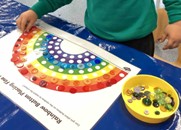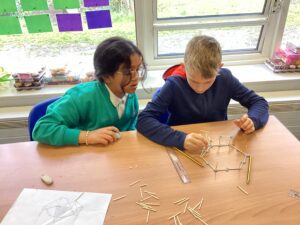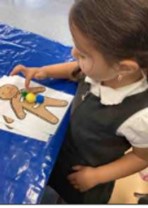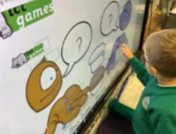Maths
Mathematics at Broadheath
“Mathematics is, within its own way, the poetry of logical ideas.”
Albert Einstein
Our intent
At Broadheath Primary School, we encourage children to have a growth mindset and to think like mathematicians to allow them to Believe, Practise, Succeed. Children are provided with the opportunity to become independent learners who are not afraid of making mistakes. We pride ourselves on engaging children and providing them with a powerful set of tools (including reasoning and problem-solving) to become fantastic mathematicians.
Mathematics is a key life skill, integral to all aspects of life and, at Broadheath Primary, we endeavour to ensure that children develop a healthy and enthusiastic attitude to mathematics, which will remain with them for the rest of their lives.
We use adaptive practice to ensure that our maths curriculum is accessible to all and provide children with the resources and tools they need to achieve their goals. In addition, lessons provide children with the opportunity to explore and investigate.
In order to become mathematicians, children at Broadheath will initially build up their understanding of number and place values before developing their skills. As they progress through school, they develop their fluency in all four operations in addition to increasing their understanding of reasoning and problem solving.
How we Implement our Maths curriculum
The National Curriculum (updated in 2014) prescribes what must be taught in each key stage and year group. We follow the National Curriculum, using a range of resources, including the White Rose maths hub reasoning and problem-solving materials. Learning objectives are adapted to meet the needs of pupils in individual classes by their class teacher.
Our pupils will develop an understanding of:
- Number value, including place value and where numbers fit into the number system
- Number bonds, multiplication tables, doubles and halves
- Mental calculation strategies
- A range of formal calculation methods for all operations, increasing in formality and complexity as they progress through school
- Number problems and how to recognise the operations required to solve them
- The use of reasoning to explain methods using correct mathematical vocabulary
- Whether an answer is reasonable and the strategies for checking such answers where appropriate
- The use of measures, including metric, imperial and non-standard
- How information can be presented and be interpreted
- How to manipulate and construct a range of graphs, diagrams, charts and tables
- Spatial awareness and the properties of 2D and 3D shapes.
Maths lessons in Key Stages 1 and 2 take place daily and provide opportunities for individual, paired, group and class activities as well as exploiting cross-curricular links to other subjects. In Nursery, focussed maths activities take place once or twice a week and in Reception maths is taught daily in addition to continuous provision activities to give them an opportunity to apply their learning.
We set work which is challenging, motivating and encourages children to take responsibility for their own learning. Children have access to a wide range of resources to support their learning including: base 10, tens frames, numicon, number lines and multiplication square. Across the school, our daily maths lesson includes a “fix-it”, “revisit-it” and “push-it”:
- Fix-it – any child with misconceptions from the previous lesson is corrected with the class teacher.
- Revisit-it – extra examples from the previous lesson to consolidate understanding.
- Push-it – an extra challenge – usually much harder – for those children who have a firm grasp of the objectives from the previous lesson.
The Impact of our Maths curriculum
As mathematicians at Broadheath Primary School, our children will be able to:
- Confidently calculate a variety of fluency questions using all four operations (addition, subtraction, multiplication and division).
- Be able to apply their knowledge to a wide variety of reasoning, problem-solving questions and real-life scenarios. I
- Be able to justify and articulate their understanding working through challenging concepts logically and methodically both collaboratively and independently.
Cultural Capital
At Broadheath Primary School, we encourage children to challenge themselves and think about maths like a mathematician drawing upon their prior learning and applying the skills they have developed. To provide children with the opportunity to develop their mathematical skills further, here are some examples of experiences they made be involved in:
- Explore maths using a variety of methods including practical investigations
- Supported with the preparation of the year 4 MTC and KS2 SATs
- Home and school links are encouraged through parental workshops and parent-teacher meetings.
- Opportunities to participate in external competitions for example the First Maths Challenge and Primary Maths Challenge
- International maths day
- Participation in our tailor made Financial literacy project
- Workshops facilitated by corporate business volunteers to develop an understanding of maths in the wider world




